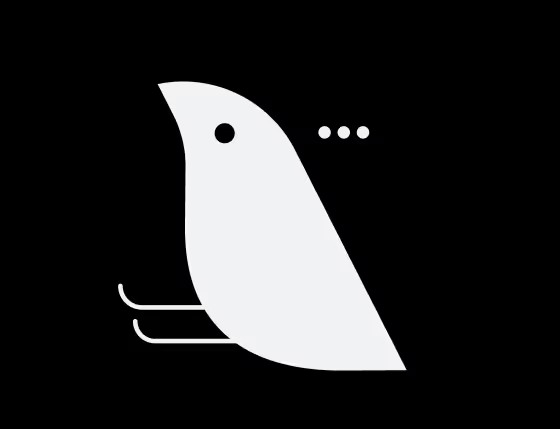Journaling for Breakups | Heal Faster With Stoic Reflection & AI Prompts
Discover how guided journaling and AI‑powered reflections can speed up emotional recovery after a breakup. Includes 10 breakup journal prompts, Stoic techniques, and a free template in the stoic app.
Updated on
June 24, 2025

Journaling for Breakups: A Stoic Roadmap to Healing
Breakups hurt. They shake your routines, your identity, and sometimes your belief in the future. But a breakup can also be a catalyst for radical self‑growth—if you process the emotions instead of letting them fester. Journaling is one of the most effective, evidence‑backed ways to do exactly that.
If you are distressed by anything external, the pain is not due to the thing itself, but to your estimate of it.
— Marcus Aurelius
Below you’ll learn why journaling works, how Stoic philosophy reframes heartbreak, and 10 curated prompts—plus a free journaling template inside the stoic app that turns raw emotion into constructive insight.
Why Journaling Accelerates Breakup Recovery
- Emotional Ventilation – Writing gives shape to chaotic feelings, reducing rumination (APA, 2022).
- Cognitive Reappraisal – Seeing your story on paper helps you rewrite the narrative and spot silver linings.
- Behavioral Tracking – Logging mood + habits (sleep, exercise) shows patterns that sabotage or aid healing.
- Stoic Detachment – Reflecting on what’s inside vs outside your control—core Stoic principle—de‑catastrophizes loss.
- AI Feedback Loop – stoic AI Reflections summarise themes you might miss, nudging personalised next steps.
Try it today: Open the free Daily Reflections in stoic, and let GPT‑4.1 craft a morning check‑in tailored to your entries.
10 Breakup Journal Prompts (Grouped by Phase)
Shock Phase (Days 1‑7)
What emotions dominate right now?
List three things still under your control today.
Grief (Weeks 2‑4)
Which thoughts keep looping? Write them verbatim.
What evidence contradicts the belief that you’ll “never be happy again”?
Reframe (Month 2)
What did this relationship teach you about boundaries?
Which personal values felt compromised?
Rebuild (Month 3+)
What future routines excite you?
Draft a self‑care menu for lonely evenings.
Growth (Ongoing)
How has your definition of love evolved?
Who can you support that’s walking a similar path?
(Find the full list of 1000+ prompts inside the stoic app)
Stoic Techniques to Pair With Journaling
- Dichotomy of Control: List what’s up to you (sleep, boundaries) vs what isn’t (ex’s feelings).
- Negative Visualisation: Imagine staying stuck in heartbreak a year from now—flip that dread into motivation.
- View From Above: Picture your life on a 10‑year timeline; today’s grief occupies a single pixel.
Further Reading: Research on Journaling After Break‑ups
- Lepore, S. J., & Greenberg, M. A. (2002). Mending Broken Hearts: Effects of Expressive Writing on Emotional Recovery After Relationship Dissolution. Journal of Personal and Interpersonal Loss, 7(2), 143‑156.
- Lewandowski, G. W. Jr., & Bizzoco, N. M. (2009). Promoting Positive Emotions Following Relationship Dissolution Through Writing. Motivation and Emotion, 33(2), 163‑174. DOI: 10.1007/s11031‑009‑9129‑4
- Sbarra, D. A., Velton, R. M., & Carrère, S. (2013). Expressive Writing Can Impede Emotional Recovery Following Marital Separation. Clinical Psychological Science, 1(2), 120‑134. DOI: 10.1177/2167702612467951
- Rude, S. S., Haner, M., & Pennebaker, J. W. (2023). Emotion‑Acceptance Instructions Enhance the Benefits of Expressive Writing. Journal of Counseling Psychology, 70(1), 56‑69.
- Frattaroli, J. (2006). Experimental Disclosure and Its Moderators: A Meta‑Analysis. Psychological Bulletin, 132(6), 823‑865 — meta‑analysis of 146 expressive‑writing studies, including breakup contexts.
Frequently Asked Questions
Clear answers to the top three questions people ask about journaling through a breakup.
How does journaling actually speed up recovery from heartbreak instead of making me dwell on it?
Journaling helps you heal faster by turning chaotic emotions into clear, manageable thoughts. Writing activates your prefrontal cortex (responsible for logic and planning) and reduces activity in the amygdala (linked to fear and stress). This cognitive shift calms emotional overwhelm, creating psychological distance and structure. In essence, journaling externalizes and clarifies pain, allowing you to rewrite your story from a healthier perspective.
What journaling prompts will stop me from obsessively checking my ex’s social media?
Choose prompts focused on reclaiming your emotional control. Effective examples include: "What urge to check my ex’s profile did I resist today, and how did I do it?" "What boundary did I successfully maintain today?" and "What new opportunity opened up because I am single?" These short reflections reinforce self-control and positive progress, replacing the dopamine rush of social media stalking.
How often and for how long should I journal about my breakup to avoid wallowing?
Aim for 10–15 minutes daily for the initial 30 days. This duration helps you process without overthinking. After a month, reduce frequency to every other day or when particularly strong emotions surface. When journaling feels repetitive or emotionally neutral, it's a sign to shift toward weekly reflections or broader self-development goals.
FAQ updated on Jun 11th, 2025
Frequently Asked Questions
Ready to turn pain into perspective?
Download stoic and receive AI‑powered reflections that speed up healing!




